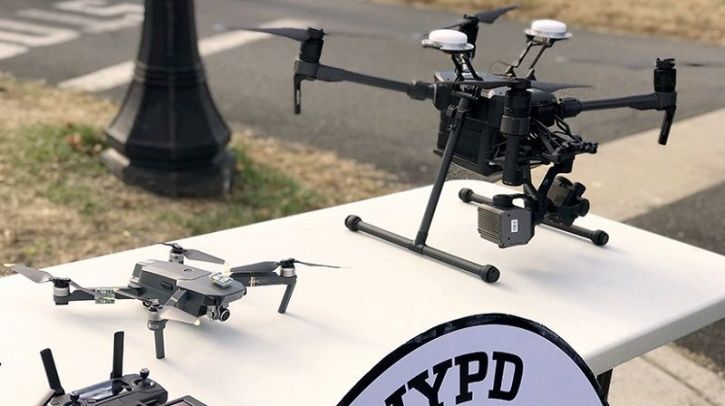For the first time ever in its history, the New York Police Department had decided to use drones for surveillance purposes at the Times Square during the new year’s eve. But all did not go in favour of the much acclaimed police department. Why? Well, it started raining.
With previous posts declaring the use of drone technology for surveillance at the Times Square in the midst of the large gathering to celebrate the new year, NYPD soon officially announced that the police department’s drones will not be taking to the skies on the day citing rain and wind as the spoiler in the plan.
Had the weather not been as it was, the drones were supposed to be NYPD’s eyes and ears in the air, equipped with high-res cameras for the same. The remote-controlled quadcopters with thermal-imaging and 3D-mapping technology would have been an addition to the existing 1200 fixed cameras. The quadcopters also came with the ability to magnify greatly on a subject, as mentioned by the Associated Press.
The plan was not to necessarily fly the drones though. In order to prevent any accidental mishap, the drones were to be flown on “cordoned-off area” or “tethered to a building”. Additionally, in order to counter any of those not flown by them, the department had deployed counter-drone technology too as per Bloomberg.

NYPD UAS Drones (NYPD)
NYPD had first unveiled its new drone program ‘Unmanned Aircraft System (UAS)’ earlier in December 2018, citing several potential uses for the same, like search-and-rescue missions, better accessibility to crime scenes and in hostage situations.
Just as surveillance, drones have found increased adoption globally, be it by the state agencies or by individuals. To help maintain their smooth operations once they start crowding the air space, NASA is already working on a traffic management system for these, the research of which is set to be wrapped up within 2019. Read more about NASA’s UAS Traffic Management system here.


